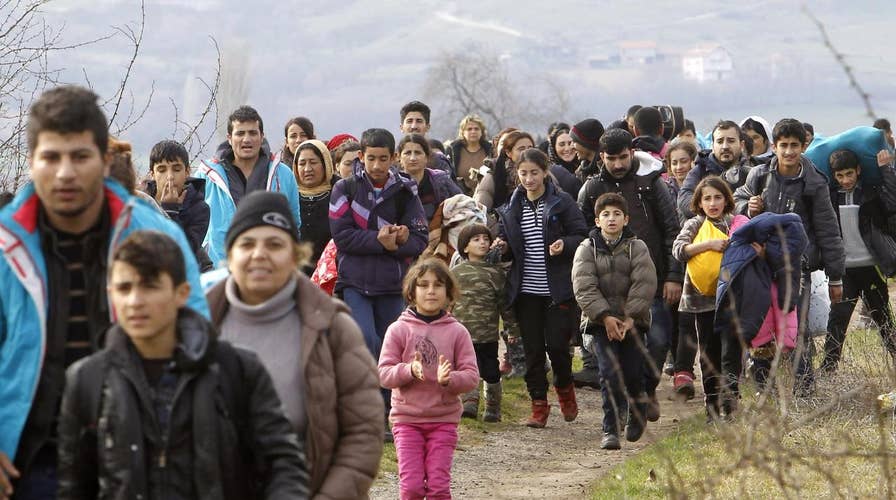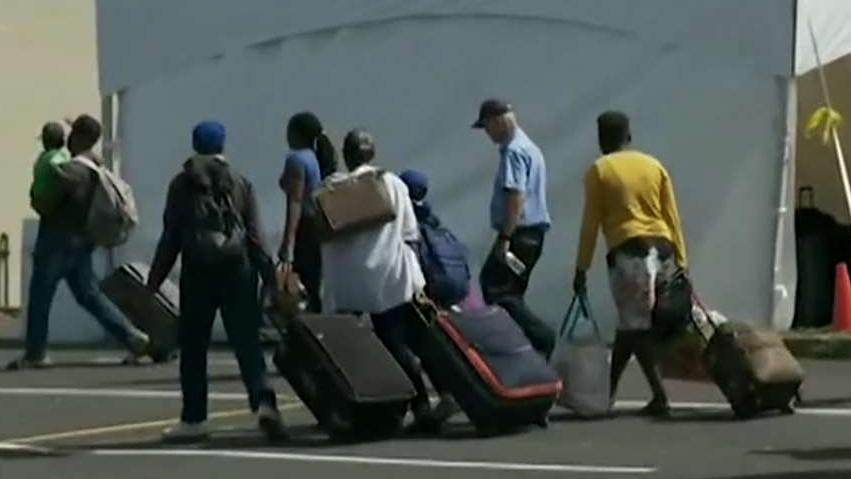Number of refugees crossing from US to Canada soars
Molly Line reports from Montreal on Canada's refugee crisis.
A questionnaire asking asylum seekers in Canada what they think about ISIS and the Taliban has been scrapped after a minister deemed it “inappropriate.”
The document was used by the Royal Canadian Mounted Police at a U.S. border crossing in Quebec, according to reports. The queries appeared to specifically target Muslim asylum seekers, as they did not mention any other religions or non-Muslim terrorist groups.
The questionnaire, first published by the Toronto Star, also had more standard fare: country of origin, basic health questions and whether the respondent has friends or family in the U.S. or Canada.
REFUGEES CONTINUE TO CROSS FROM US TO CANADA IN UNPRECEDENTED NUMBERS
But it then asked the asylum seeker's opinion on ISIS, the Taliban and how they feel about women who do not wear religious garbs, such as the hijab and niqab.
Question 31 on the form reads: “Canada is a very liberal country that believes in freedom of religious practice and equality between men and women. What is your opinion on this subject? How would you feel if your boss was a woman?”
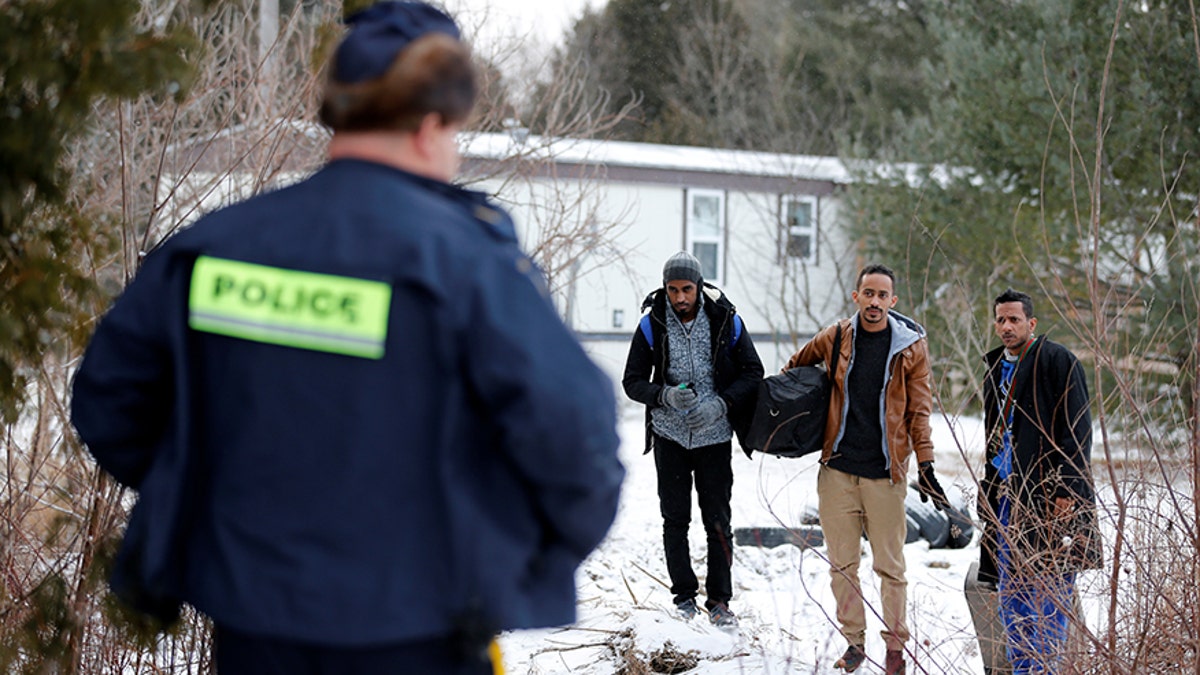
Three men who claimed to be from Sudan are confronted by Royal Canadian Mounted Police. (Reuters)
A spokesperson for the RCMP told the Toronto Star on Wednesday the questions were part of an “interview guide” used by officers in Quebec.
“Due to the high volume of irregular migrants in Quebec, an interview guide was developed as an operation tool to streamline processing and provide consistency in the RCMP’s preliminary risk assessments,” Annie Delisle told the Star.
It's unclear how long it had been used.
The RCMP didn't immediately return Fox News' request for comment.
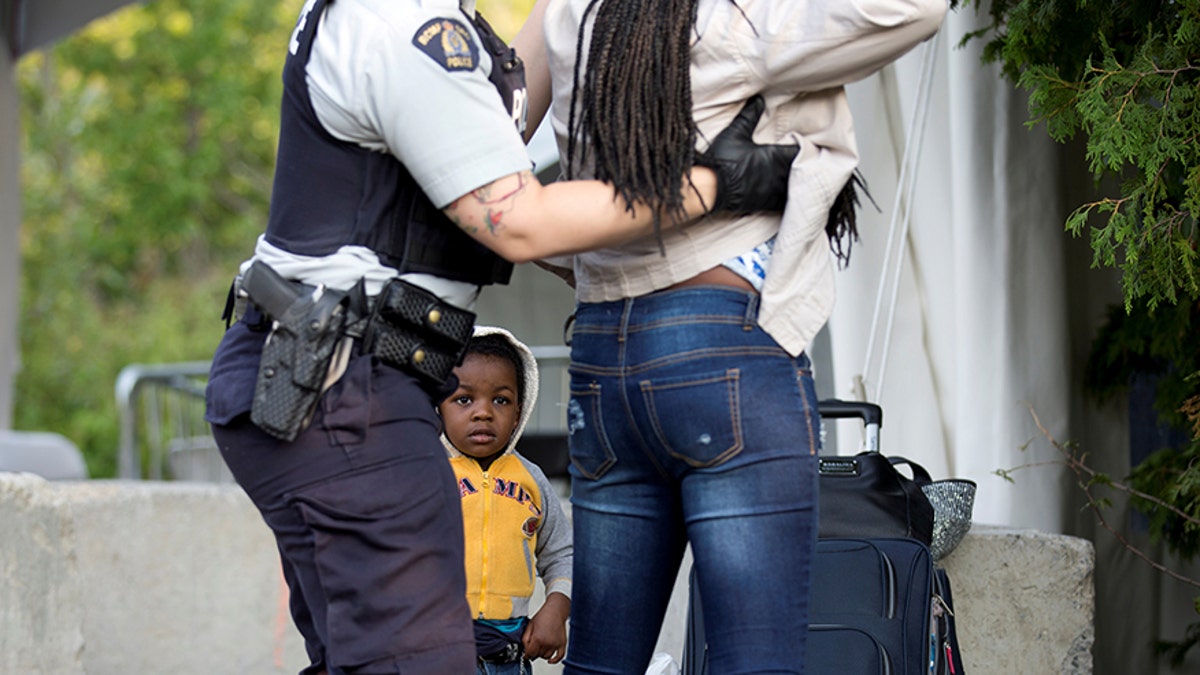
Evanston, whose family stated they are from Haiti, watches as a Royal Canadian Mounted Police officer pats down his mother. (Reuters)
According to the Star, the answers from the questionnaire were entered into RCMP databases and could be shared with the Canada Border Services Agency.
Scott Bradsley, spokesperson for Public Safety Minister Ralph Goodale, told the Star on Wednesday the use of “the version” of the guide has been suspended by the RCMP.
“The minute we became aware of the interview guide, we were immediately concerned and contacted the RCMP,” he said. “Some of the questions were inappropriate and inconsistent with government policy.”
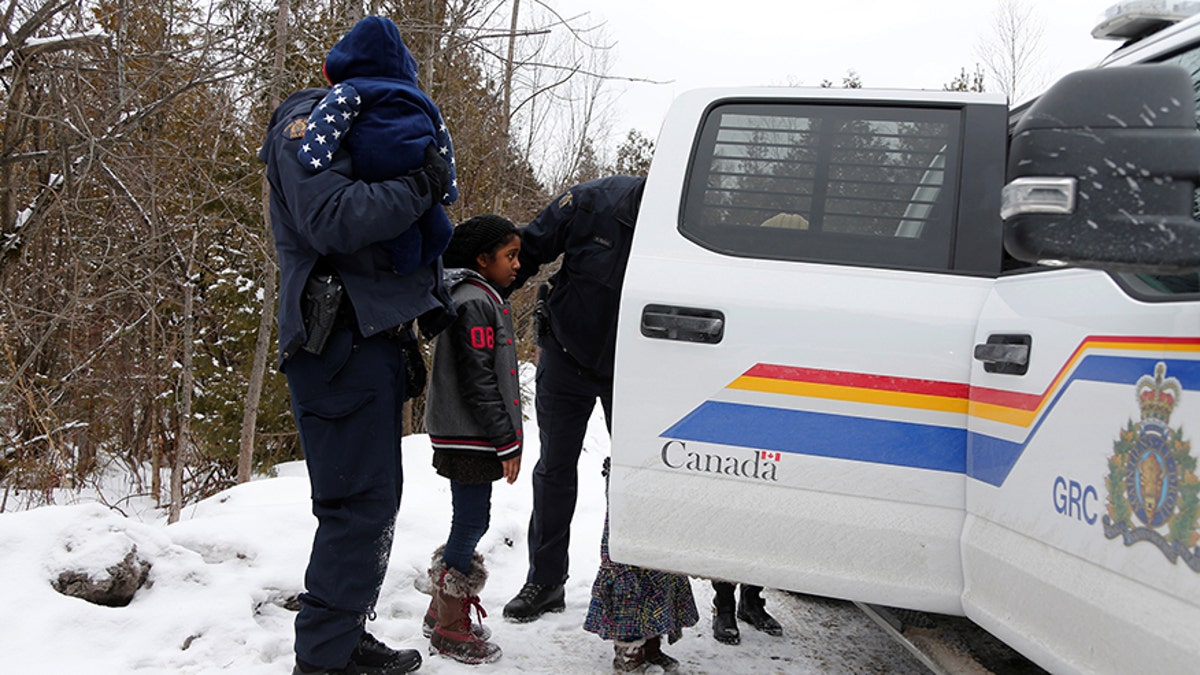
The children of a woman who told police that she and her family were from Sudan are placed in a vehicle as they are all taken into custody by Royal Canadian Mounted Police officers. (Reuters)
Immigration lawyer Clifford McCarten, who obtained a copy of the document from a client seeking refugee status told the Canadian Press that he was “shocked” by the questions.
"If, in fact, this was a local detachment making this decision -- which I find a bit hard to believe -- then it's deeply concerning that one of the most, if not the most problematic crisis spot in Canadian immigration and refugee policy right now...doesn't have a federal strategy for how screening is happening," he said.
McCarten told the Toronto Star while he was thankful for the quick reaction by Goodale’s office, other questions need to be answered.
“I’m heartened to hear from the leadership that they take this as seriously as we do,” McCarten said. “But what possible purpose could someone’s opinion about female employment or religious head coverings have to bear on an assessment risk?”
He added: “If someone’s religious opinion is sufficient to place them in an RCMP database for potential future monitoring, we need to be concerned about that. If they recognize those questions are inappropriate, then they need to destroy all the information that was gathered.”
Canada has seen a recent influx of refugees crossing into the country from the U.S. in unprecedented numbers.
More than 13,000 people have crossed illegally into Canada this year, according to Canadian government data. That's more than five times the number intercepted by the RCMP in 2016.
More than 5,700 asylum seekers crossed illegally in August alone, avoiding checkpoints -- and the risk of being sent back to America. Most simply walk in, crossing where a rural dead end in New York meets the Canadian border.
